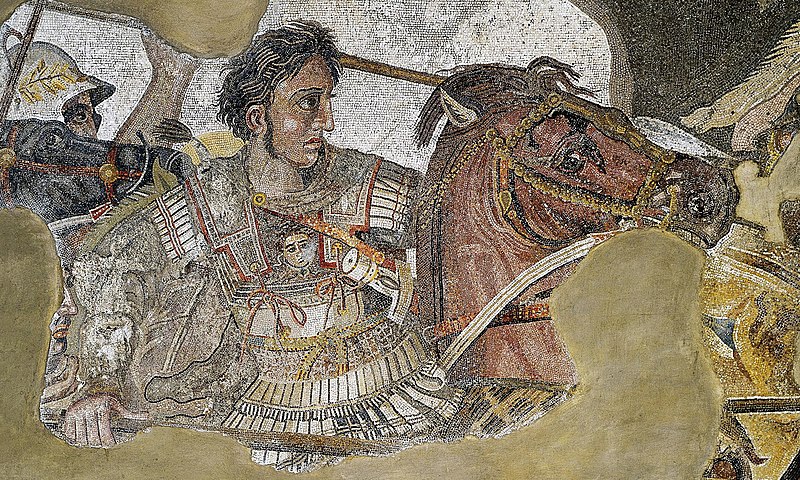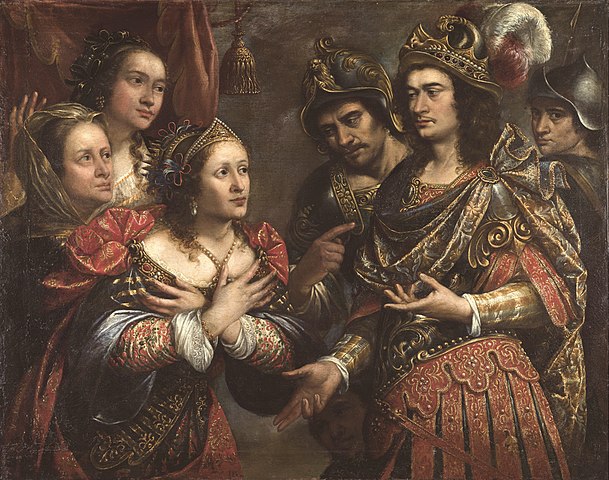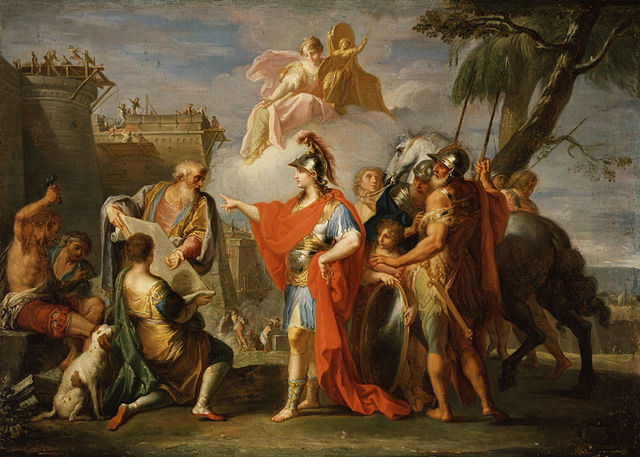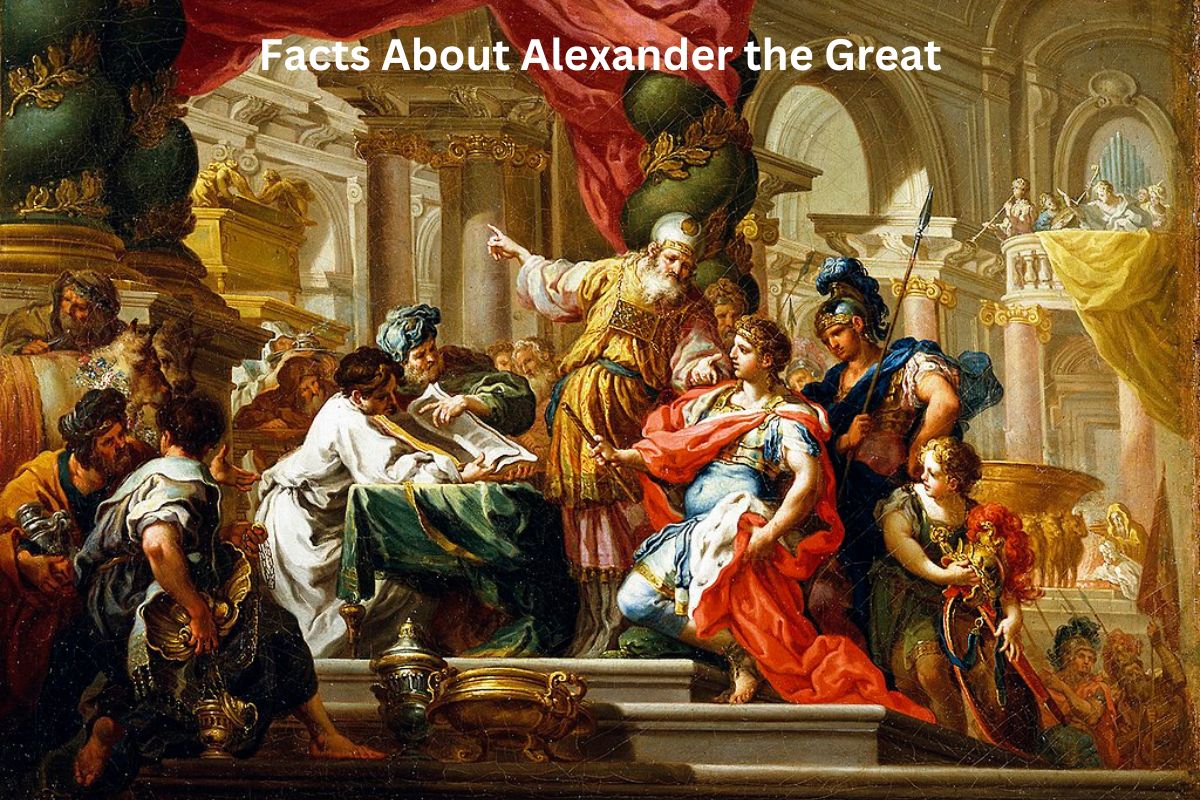Alexander the Great, born in 356 BCE in Pella, Macedonia (now Greece), was one of history’s most influential military leaders. He became the king of Macedonia at the age of 20, following the assassination of his father.
Known for his strategic brilliance and undefeated military record, Alexander embarked on a series of conquests that established one of the largest empires in ancient history.
His campaigns against the Persian Empire, his cultural exchange initiatives, and the founding of cities like Alexandria left a lasting impact on the world.
Though his empire fragmented after his death, Alexander’s legacy as a visionary conqueror and promoter of Greek culture continues to resonate today.
Alexander the Great Facts
1. Born in 356 BCE in Pella, Macedonia (modern-day Greece)
Alexander the Great was born in 356 BCE in Pella, Macedonia (modern-day Greece). He was the son of King Philip II of Macedonia and Queen Olympias.
Also Read: Alexander the Great Accomplishments
Pella, the capital of Macedonia, was a center of power and culture at the time. Alexander grew up in a royal household and received a privileged education.

2. Became king of Macedonia at age 20 after his father’s assassination
At the age of 20, Alexander became the king of Macedonia following the assassination of his father, King Philip II, in 336 BCE.
This sudden rise to power presented Alexander with the opportunity to fulfill his ambition of conquering the Persian Empire, which his father had started but not completed.
3. Created one of the largest empires in ancient history
Alexander’s military conquests were extraordinary and laid the foundation for his legacy. He led his armies to victories across vast territories, creating one of the largest empires in ancient history. His campaign against the Persian Empire is particularly notable.
Also Read: Timeline of Alexander the Great
In 334 BCE, he crossed the Hellespont (modern-day Dardanelles) with his army and embarked on a series of stunning victories against the Persians. He defeated Darius III in major battles such as the Battle of Issus in 333 BCE and the Battle of Gaugamela in 331 BCE, ultimately overthrowing the Persian Empire.
Alexander’s military prowess and tactical genius allowed him to conquer vast regions, including Egypt, Mesopotamia, Persia, and parts of India. His empire stretched over three continents, covering approximately two million square miles at its height.
4. Known for his undefeated military record and strategic brilliance
Alexander the Great’s military achievements are renowned and earned him a place among history’s greatest military commanders. He exhibited exceptional strategic thinking, adaptability, and leadership on the battlefield.
His army, known as the Macedonian phalanx, was a formidable force that utilized tightly packed infantry formations with long spears called sarissas.
This formation proved highly effective in battle and contributed to Alexander’s string of victories. He never lost a major battle, defeating powerful adversaries such as the Persians, Egyptians, and Indian kings.
5. Conquered the Persian Empire and overthrew its king, Darius III
Alexander the Great’s conquest of the Persian Empire is considered one of his most significant military achievements. The Persian Empire, led by King Darius III, was a formidable power at the time, stretching across vast territories of the Near East.
In 334 BCE, Alexander crossed the Hellespont (modern-day Dardanelles) with his army and initiated his campaign against the Persians. He won a series of decisive battles that solidified his control over the region.
One of the notable victories was the Battle of Issus in 333 BCE, where Alexander defeated a much larger Persian army led by Darius III. This victory allowed Alexander to establish a foothold in Asia Minor and opened the path for further conquests.
The climax of Alexander’s campaign against the Persians came in 331 BCE with the Battle of Gaugamela. In this battle, Alexander deployed innovative tactics and exploited the weaknesses in the Persian army’s formation.

Despite being heavily outnumbered, Alexander’s forces emerged victorious, leading to the collapse of the Persian lines and the flight of Darius III.
Following the battle, Darius III was pursued by Alexander but was eventually assassinated by one of his own commanders. With the death of Darius III, Alexander claimed his position as the ruler of the Persian Empire.
Although there were subsequent resistance movements and challenges to his authority, Alexander’s victory effectively marked the end of the Persian Empire and solidified his dominance over the region.
6. Promoted cultural exchange and blended Greek and Persian cultures.
Alexander the Great’s conquests not only aimed at expanding his empire but also involved promoting cultural exchange and blending Greek and Persian cultures. He recognized the value of incorporating the rich traditions and knowledge of the Persian Empire into his expanding dominion.
To foster cultural exchange, Alexander encouraged his soldiers to intermarry with local populations, aiming to create a sense of unity and cooperation between Greeks and Persians.
He also adopted certain Persian customs himself, such as donning Persian attire and adopting courtly practices.
By embracing elements of Persian culture, Alexander aimed to bridge the gap between his Greek Macedonian origins and the diverse populations he encountered.
7. Founded cities, including Alexandria in Egypt
Alexander the Great founded numerous cities throughout his empire, many of which were named after him. One of the most famous and influential of these cities was Alexandria in Egypt, established in 331 BCE.

Alexandria quickly became a vibrant center of trade, commerce, and culture. It housed the renowned Library of Alexandria, which served as a repository of knowledge and attracted scholars from various disciplines.
The city also boasted the Pharos Lighthouse, one of the Seven Wonders of the Ancient World. Alexandria’s strategic location and cultural significance made it a vital hub of the Hellenistic world.
8. Had Aristotle as his tutor and developed a passion for education
Alexander’s education played a crucial role in shaping his character and ambitions. He was tutored by the philosopher Aristotle, who instilled in him a love for learning, literature, and philosophy.
Under Aristotle’s guidance, Alexander gained knowledge in a wide range of subjects, including science, politics, and ethics.
This education fostered his intellectual curiosity and influenced his later endeavors. Alexander admired the Greek hero Achilles and sought to emulate him, shaping his own identity and cultivating a sense of destiny and greatness.
9. Faced tensions and rebellions due to policies favoring Greeks
Despite his military success, Alexander’s policies favored Greeks over native populations in his conquered territories.
This approach led to tensions and rebellions among the local populations. Some regions saw resistance to his rule, particularly from Persian noble families and those who opposed the imposition of Greek culture.
Alexander sought to integrate his Greek and Macedonian troops with local soldiers to create a unified army, but this often resulted in discontent and unrest. The ongoing tensions and the perception of Greek superiority contributed to challenges in governance and the stability of his empire.
10. Died in 323 BCE at age 32, leading to the fragmentation of his empire
Alexander the Great’s death in 323 BCE marked the end of his extraordinary conquests and left a power vacuum in his empire. He passed away in Babylon at the young age of 32.
The exact cause of his death remains uncertain, with various theories proposed, including malaria, typhoid fever, or even poisoning. His untimely demise triggered a succession crisis among his generals, known as the Diadochi.
These generals fought among themselves for control over different parts of the empire, ultimately leading to its fragmentation into separate kingdoms ruled by his successors.
The Hellenistic era that followed Alexander’s death witnessed the continued influence of Greek culture, but the unity of his empire could not be sustained.
